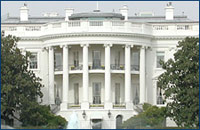ESOPS Likely to Suffer First in Tribune Bankruptcy
 Chicago is NOT the place to be these days (of course people from Milwaukee already know that) — especially if you are a corrupt politician or a financially-stressed newspaper. On the newspaper side of things — Elizabeth Dale (Florida) writes to tell us that the ESOP angle of the The Tribune Company bankruptcy is truly a mess.
Chicago is NOT the place to be these days (of course people from Milwaukee already know that) — especially if you are a corrupt politician or a financially-stressed newspaper. On the newspaper side of things — Elizabeth Dale (Florida) writes to tell us that the ESOP angle of the The Tribune Company bankruptcy is truly a mess.
She points us to this story from the New York Times Deal Book:
The possibility of a bankruptcy filing at Tribune Company is an embarrassing development for Samuel Zell, the real-estate mogul who took the media company private last December.
But it is likely that Tribune’s employees — or, more specifically, the employees’ stock-ownership plan — would take the first hit.
Because of the unusual structure of Tribune’s $8 billion buyout, Tribune’s employee stock-ownership plan holds 100 percent of Tribune’s common equity, regulatory filings show. Common stockholders are generally the first to take a loss in a bankruptcy restructuring, and they usually recover next to nothing.
Mr. Zell, by contrast, supplied mostly debt in the complex transaction, putting him higher in line to get paid. His $315 million investment in the Tribune deal consisted of a $225 million promissory note; the rest was for warrants to buy about 40 percent of Tribune’s stock in the future.
Great, another self-centered corporate CEO looking out for himself and screwing the employees of his company. I guess we should be thankful that at least he is not asking for a bail out.
More about this story here.
Cross posted at Workplace Prof Blog.


